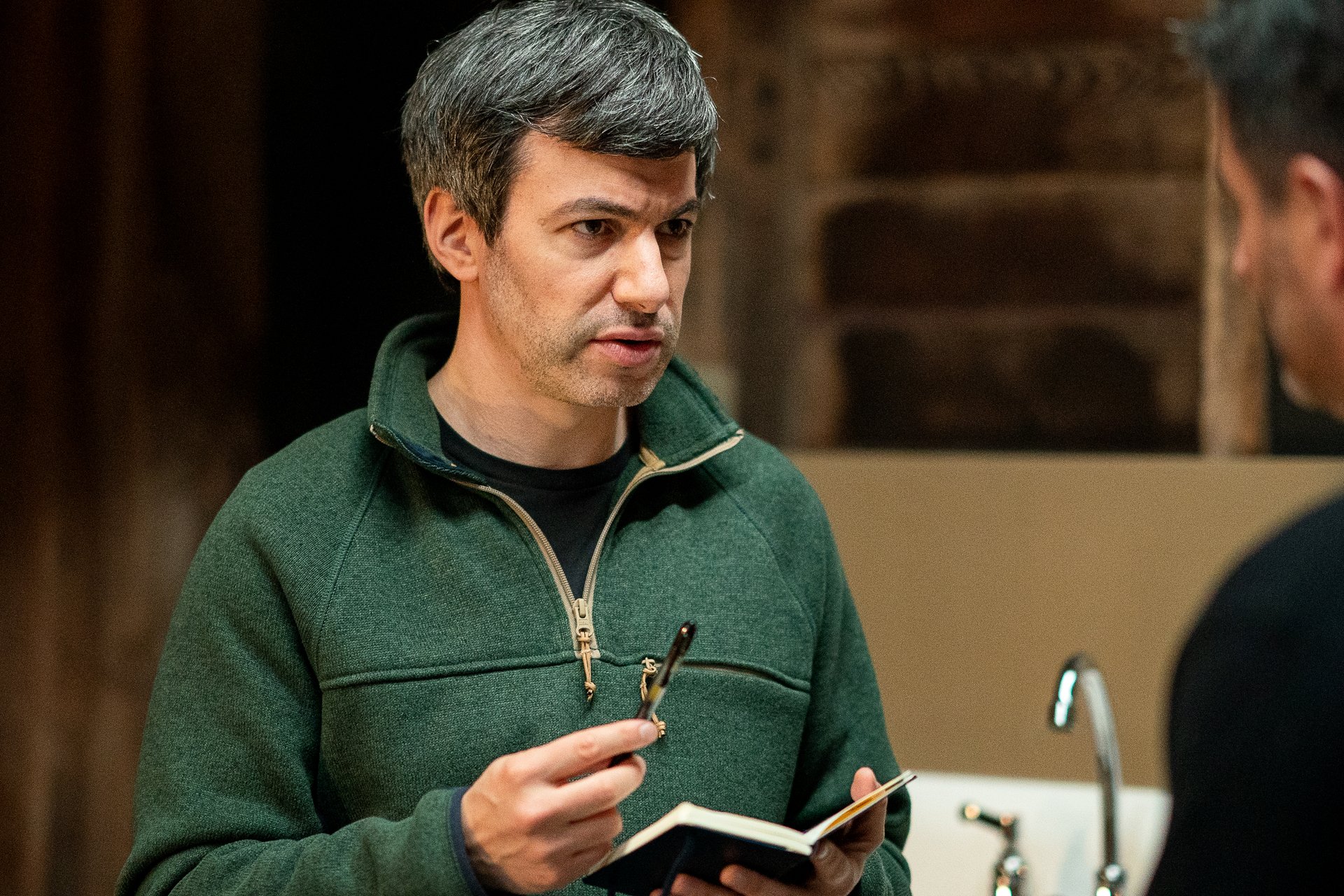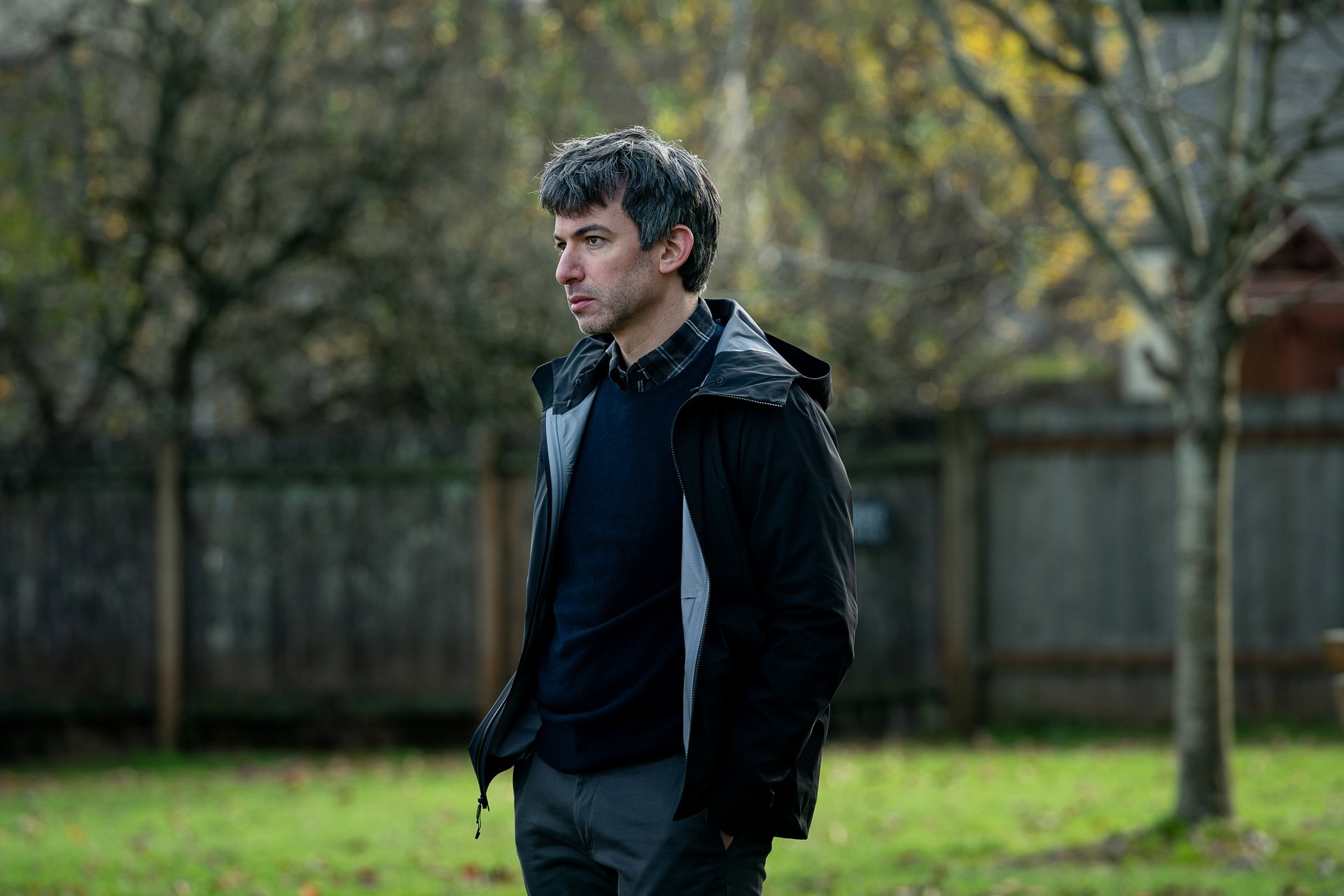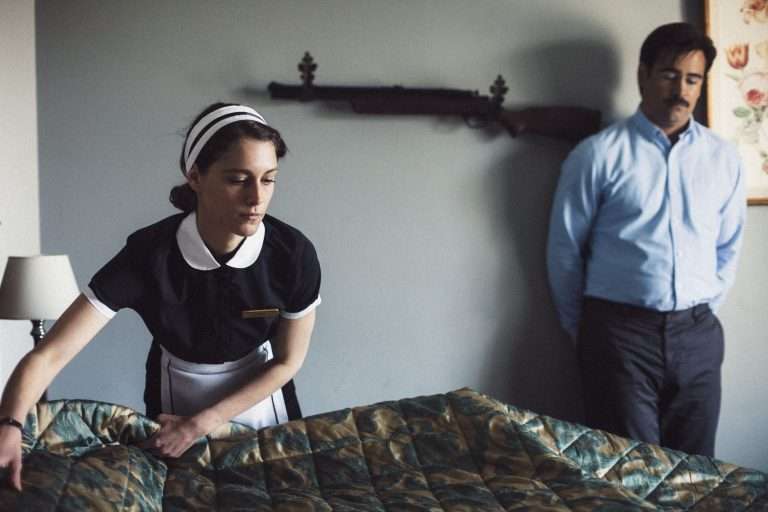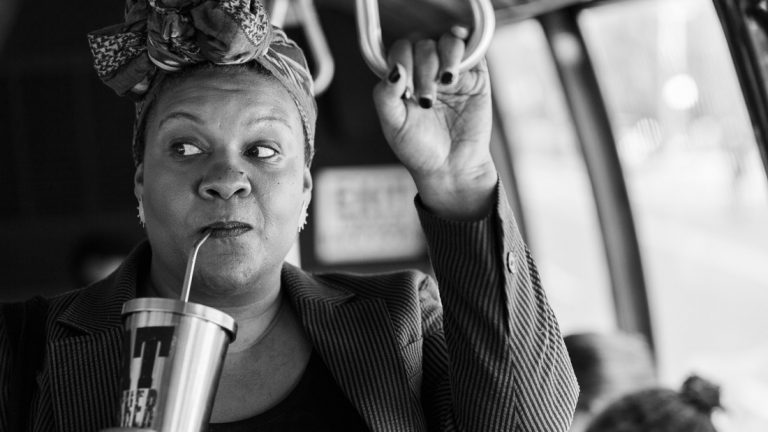The Rehearsal (Season 1), Episode 4: Recap & Ending Explained: The latest episode in The Rehearsal takes another step ahead with its intelligent concept. While giving us a glimpse of a whole new experience shared by Nathan and Angela, it simultaneously plays with human emotions. It makes us question things we often neglect in life. This particular episode is more humane and thought-provoking. Raising questions about what it is like to be an actor, how it feels when things are constantly evolving, and what it takes to juggle one’s life in two different worlds.
Here is a recap of the fourth episode of the Rehearsal; please be aware of spoilers ahead.
The Rehearsal (Season 1), Episode 4 ‘The Fielder Method’ Recap:
The prologue leads us to an insightful conversation between Angela and Nathan as they prepare for dinner in the kitchen. While cooking spaghetti, Angela asks Nathan if he had ever hated one of his parents. She also shares – the absence of a father figure in her life made her resent her dad, and eventually developed a rebel instinct that led to many tormenting experiences as a teenager. As the conversation proceeded, we learned more interesting and never shared information about Angela.
Picking up from the last episode, where Nathan was seen trying to manage his personal and professional life, episode 4 finds him on a business trip to Los Angeles. He takes us along the ride for a peep inside his brilliant mind, and how he comes up with strange, but intuitive concepts for a simulation experience.
During the duration of creating the episodes for The Rehearsal, Nathan discovered that an actor’s sense of authenticity could extensively vary from one to another. He wishes to create a standard of realism that actors exhibit, so he plans to develop it through the experience of the rehearsal. For that, he launches The Fielder Method, a sort of workshop/school for Acting in LA – which is the heart of the Hollywood film industry. The workshop is like a recruitment center to hire and acquaint the actors (who will eventually play different roles in his project) with the core of his ‘modus operandi’.
Sharing the fundamental tactics of his project, Nathan illustrates to his students that if an actor’s performance isn’t up to mark, it could destroy the course of someone’s life. He explains that preparing an actor for a rehearsal is a sort of a spy mission. It is crucial for Nathan that these actors learn how to do it themselves (a proactive method to rectify his mistakes in past rehearsals!)
As we get into the stimulating act of the episode, it seems we have a better idea of where it will lead. One grows to examine if Nathan wants us to analyze the essence of being an actor, or how much does it take to fit in the role and make it real for the audience?
The conceptualization of this episode leads us to Nathan’s intention – wanting his actors (or himself) to expand their understanding of the world, in order to create compelling performances in the rehearsal. While explaining to his students the different ways to enact a subject in his project, he discusses that playing someone as an actor relies on the notion of purely becoming that person.
The actor must stalk their subject to understand a person’s distinctive mannerism/character trait. The process demands an actor’s ability to imagine a character’s world. In one sequence during the classroom discussion, one of the actors refers to Stella Adler’s and Tadashi Suzuki’s acting techniques. (This could be a way to show Nathan Fielder’s fascination towards the legendary actor-turned-teachers who changed the concept of acting, making it an avant-garde experience).
By the end of the class, Nathan sets an assignment for the students where they have to go out in the real world and pick a stranger for observation. The next day, the students are supposed to dress as the person they choose to study.
How does Nathan turn Fielder’s method into an experiment?

After spending time with his students, Nathan wondered what they thought of him. He decided to recreate the class as an experiment to understand the psychology of his students towards him. However, this time he was on the other side as a student. Nathan picked a random student named Thomas to inhabit his role. Putting himself in Thomas’s headspace, he realized that the teacher was not connecting with anyone in the class.
Keeping in mind important learning factors from his experiment, Nathan tried to make some critical changes in his approach. He understood that connecting with his students personally and guiding them throughout the course is essential. It became more evident to him that giving individual attention and making the students feel comfortable in this journey is a win-win situation for a teacher.
Establishing another level of meta in The Rehearsal:
How much meta is too much? Nathan Fielder is unbelievably good at expressing his feelings about being lonely on the personal front, without giving out too much of it on the professional front. While dressing up the sushi platter, Nathan video calls Angela back from his LA home. Unable to get through, his straight downhearted face makes you feel dearly for him. However, with a shift of emotion, he is back in his form as a teacher the next day.
The following days in the rehearsal show Nathan assigning similar jobs to all the subjects his students are interacting with daily. It will help the actors get under the skin of the person they are impersonating in the class. However, while discussing the details of the characters they are supposed to inhibit, Thomas struggles to get it right. Nathan found reading his mind challenging. So, to make things simpler, he offers Thomas to move into an apartment that reflects the living situation of his primary (subject), enabling him to immerse himself in the role.
Once Thomas was onboard with the idea, Nathan collected his flat keys and suggested it was only to help him water the plants while he was away. And here is when the episode takes a leap of faith and makes everything even meatier than it already was.
While Thomas was getting deeper into his character, living his primary’s life, Nathan, was determined to get even deeper into his character as Thomas. Nathan says that his intentions are to understand how much it means to be an actor, what length would an actor go, or what sacrifices they will make to pursue their dream.
Although Nathan was living the same life as Thomas, there were still so many things he felt were mysteries to him. Could this be the only close possibility of knowing a person? Or the last step to understanding someone is always a guess?
After a week of work living someone’s life, Nathan called everyone for a final showcase on the last day. During the presentation, Nathan marveled at each actor’s smile after playing their respective part perfectly. He thinks it is entirely alright to pretend once in a while and tell yourself everything is okay.
After successfully concluding the Fielder method acting course, it is time for Nathan to return to life back in Ronde, Oregon. However, he is anxious and conflicted about how he feels about returning as he was away for a while. Once inside the house, he meets Adam, who is now a teen. It felt wrong how things have quickly passed in his absence (the simulation process reflects a nine years gap.) With the strange feeling of his return to the family life, and a 15-year teenager as his son, Nathan starts acting out of character, unable to process it all.
Curious to witness how little adjustments would enhance his simulation process, he goes to Adam’s room. Nathan requests the actor playing Adam to speak to him out of character. Connecting his learning experience from the acting classes in LA with his life here in Oregon, he interacts with Joshua to understand him well. He interrogates Joshua about how he would feel if his father returned home after nine years.
Checking his reaction and trying to make out every feeling an abandoned child would undergo in real life, Nathan suggests that they go back to the first moment of his first interaction after his return to the house. Joshua and Nathan prepare ways to get inside the character/psyche of a son resenting his father and the parent trying to undo his mistakes.

The Rehearsal (Season 1), Episode 4 ‘The Fielder Method’ Ending Explained:
This time, on his return, Nathan sees his son for the first time in nine years. Adam is angry and walks away, leaving Nathan alone, sinking in the emotions of a parent absent from his child’s formative years. The more Nathan tried to mend things with Adam; the farther his son would try to get away. Until the day of the confrontation, Adam broke his silence and demanded why Nathan was never there when he was growing up.
The fourth episode of the rehearsal concentrates on the thin line of mending or breaking a parental relationship with their children (it also shows a brief moment where two partners have a healthy conversation when their personal life relating to their child is in a disarray).
Without preaching the notion of how to parent a child, it brings the audience to focus on the trigger points of dealing with rebellious children. Even if one of the parents is absent, it could lead a child to a devastating childhood situation with outrageous behavioral issues or traumatic experiences. The episode also, in some way, shows how a child takes after their parents.
Making the simulation process as authentic as possible, Adam is seen indulging in substance use and drinking at the mere age of 15. Nathan and Angela are worried about their only child and try to help him, but their efforts go in vain. To give space and not impose his over-caring parental instinct on the child, Nathan tries to befriend Adam by gifting him a guitar pedal. A gesture with the hope that one day he could reconnect with his son and make up for the lost days.
Keeping a calm environment amidst the fact that his son is exposed to drug use, Nathan is constantly worried about the well-being of his child. The show thus also shows the matter-of-factedness where a parent is always ready for extremes. However, is a parent ever prepared (enough) to face anything as grave as seeing their child fighting for his life because of substance overuse? How does this affect the relationship of two people co-parenting the child undergoing the dreadful experience?
Unable to live through the dreadful experience and how his absence affects Adam’s life, Nathan feels conflicted about his choices in the simulation. He goes to Angela and implores the idea of going back to the life before his little project in Los Angeles. She agrees with him, assuring him she will stand right with whatever he thinks fits for the show. Later in the night, Nathan rushes to Adam’s room to see him lying on the floor, struggling to breathe (because of a substance overdose.) While Adam is taken to the ambulance with Nathan by his side, Adam wake up and runs away into the field. As any father would do in his situation, Nathan searches for Adam in different corners of the streets in the city.
When he finally sees Adam in a park sitting on a slider with other kids (equally sedated in drugs), he stands in the corner away from him, closely observing (and reevaluating his life decisions!). Adam looks at his father, slides through, and emerges as a six-year-old. Both of them hold their hands and then walk out of the park.
On the other side, the teenage Adam climbs back the slider, looks around, and then directly at the crew, asking, “Is that it?” During the scene, Nathan explains that everything is pretense till you turn the character in your mind into reality. It is all about a change of perspective to reset things in the world to make it feel brand new.
Will Nathan explore more humane emotions in this simulating project or take things to another height of pretense? We will find out in the next episode of The Rehearsal.
<< PREVIOUS EPISODE
THE REHEARSAL (SEASON 1), EPISODE 4 SHOW LINKS – IMDB, WIKIPEDIA




![Hridayam [2022] Review: Vineeth’s breezy love letter to a past with a lived-in feel](https://79468c92.delivery.rocketcdn.me/wp-content/uploads/2022/02/Hridayam-2022-2-768x405.png)

![Swiped Netflix [2018] Review- Swipe it Left](https://79468c92.delivery.rocketcdn.me/wp-content/uploads/2019/06/Swiped-Netflix-768x384.jpg)
